Laxmi Gupta
An Asymetric Cycle-Consistency Loss for Dealing with Many-to-One Mappings in Image Translation: A Study on Thigh MR Scans
May 19, 2020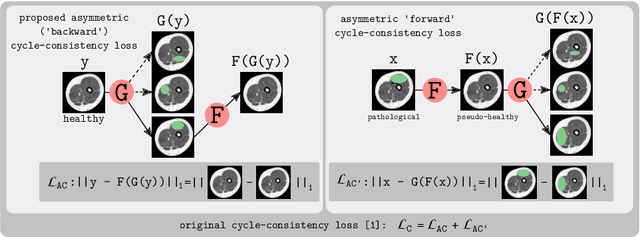
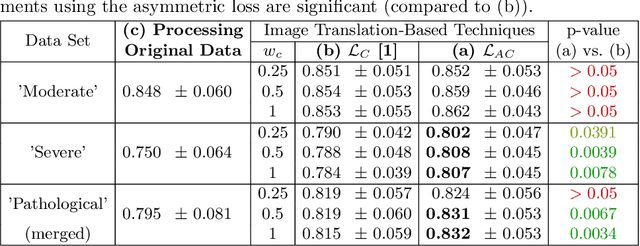

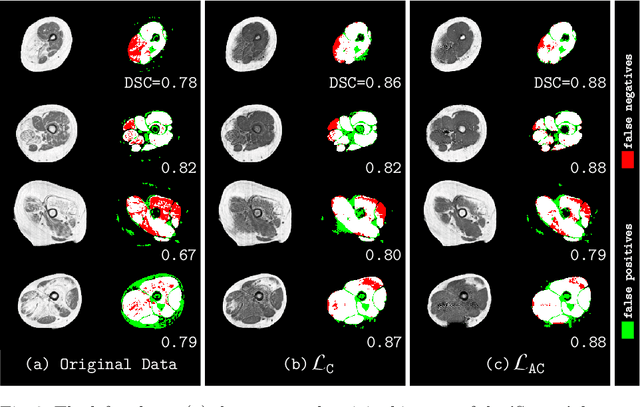
Abstract:Generative adversarial networks using a cycle-consistency loss facilitate unpaired training of image-translation models and thereby exhibit a very high potential in manifold medical applications. However, the fact that images in one domain potentially map to more than one image in another domain (e.g. in case of pathological changes) exhibits a major challenge for training the networks. In this work, we offer a solution to improve the training process in case of many-to-one mappings by modifying the cycle-consistency loss. We show formally and empirically that the proposed method improves the performance significantly without radically changing the architecture and without increasing the overall complexity. We evaluate our method on thigh MRI scans with the final goal of segmenting the muscle in fat-infiltrated patients' data.
Unsupervisedly Training GANs for Segmenting Digital Pathology with Automatically Generated Annotations
Aug 01, 2018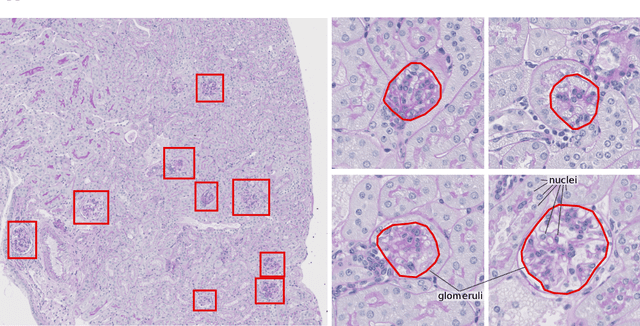
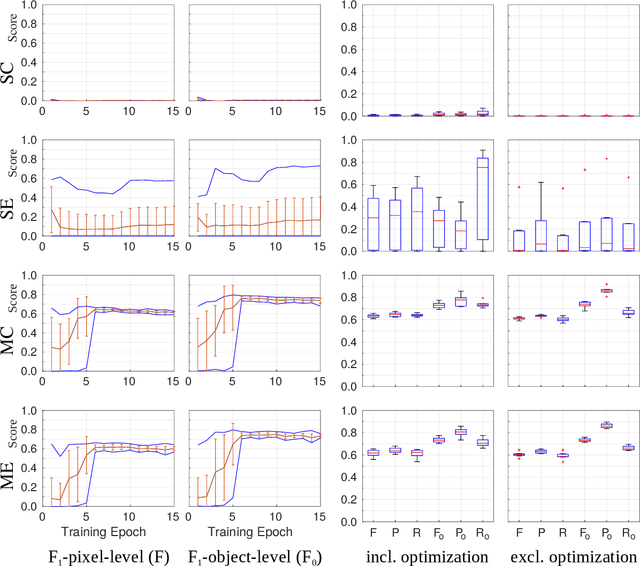
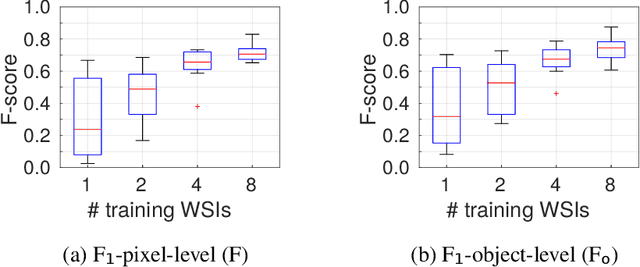

Abstract:Recently, generative adversarial networks exhibited excellent performances in semi-supervised image analysis scenarios. In this paper, we go even further by proposing a fully unsupervised approach for segmentation applications with prior knowledge of the objects' shapes. We propose and investigate different strategies to generate simulated label data and perform image-to-image translation between the image and the label domain using an adversarial model. Specifically, we assess the impact of the annotation model's accuracy as well as the effect of simulating additional low-level image features. For experimental evaluation, we consider the segmentation of the glomeruli, an application scenario from renal pathology. Experiments provide proof of concept and also confirm that the strategy for creating the simulated label data is of particular relevance considering the stability of GAN trainings.
 Add to Chrome
Add to Chrome Add to Firefox
Add to Firefox Add to Edge
Add to Edge